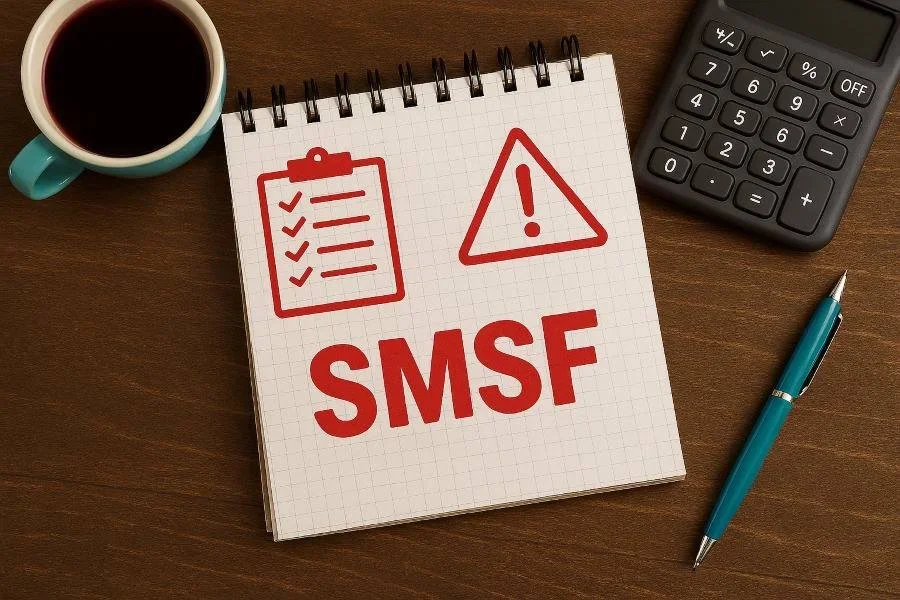Are SMSFs Worth It? Emerging Wealth’s Essential Guide
Thinking about setting up a Self-Managed Super Fund (SMSF)?
You’re not alone.
Self-Managed Super Fund or SMSFs are often marketed as the ultimate way to take control of your retirement savings. But before you dive in, let’s cut through the noise and talk about the real pros and cons, and why at Emerging Wealth, we rarely recommend them.
What’s an SMSF, anyway?
An SMSF is a private super fund you run yourself. Sounds empowering, right? But with great power comes… a mountain of responsibility (and paperwork). You become the trustee, which means you’re in charge of compliance, investment decisions, and making sure the ATO doesn’t come knocking.
The Upside of SMSFs
Control & Flexibility
Full control over your investment strategy—choose assets like property syndicates, your own office, private investments, or even artwork.
Property Play
Business owners can buy their commercial premises through an SMSF and lease it back to their business at market rates.Family Pooling
Combine balances with up to six members for a larger investment pool, opening doors to bigger opportunities.Tax Planning Opportunities
SMSFs allow more flexibility in managing contributions, pensions, and timing of capital gains to optimise tax outcomes.Estate Planning Control
Greater control over how your super is passed on, with tailored strategies for death benefits and succession planning.
The Downside (and Why We Don’t Use Them)
They’re Expensive
Between setup, annual audits, and compliance, SMSFs typically cost $4,000–$10,000+ each year. Unless your super balance is above $500k, the costs rarely stack up. For my members who are mostly under 50—often with smaller balances—the return on investment usually isn’t worth it.
Time-Consuming & Compliance Heavy
Managing an SMSF isn’t a set-and-forget exercise. As a trustee, you’re legally responsible for meeting ATO compliance rules, record-keeping, and reporting obligations. Even if you outsource administration, the responsibility still sits with you. One mistake can lead to significant penalties, so it requires ongoing attention and commitment.
No Built-In Safety Net
Unlike retail or industry super funds, SMSFs don’t have access to government compensation schemes. APRA-regulated funds can apply for assistance under the Government Financial Assistance Program if losses occur due to fraud or theft. SMSFs, however, are on their own. If your fund suffers a loss—whether from fraud, theft, or provider failure—the responsibility and cost fall entirely on you as the trustee. Legal action is possible, but recovery is uncertain and often expensive.
Often Under-Diversified
Many SMSFs pour most of their balance into property—often just one or two assets—leaving no funds for diversification. This means members end up with property in their own name and in their SMSF, missing out on the benefits of a balanced portfolio.
Our Take at Emerging Wealth
If you want shares, you don’t need an SMSF. Retail super funds give you access to shares and ETFs at a fraction of the cost.
Most of our clients are already heavily invested in property, so adding more property inside super often increases concentration risk—it doesn’t reduce it.
SMSFs only make sense if you’re passionate about property syndicates, commercial property, or unique assets like artwork—and you have the balance and appetite for the complexity.
So, Should You Get an SMSF?
For 90% of people, the answer is NO. A well-structured retail super fund offers simplicity, diversification, and cost efficiency—without the headaches.
Want to know the smartest way to grow your super without the stress? Book an explore meeting with Emerging Wealth and let’s build a plan that works for your life.
Ready to take control of your financial future?
Let’s chat about building a plan that fits your lifestyle and goals.
MIKE MILLER
Founder, Financial Adviser | BBus, CFP®, RLP, JP
Emerging Wealth l Financial Planners in Sydney for ambitious under 50s who want more out of life than the ordinary.

